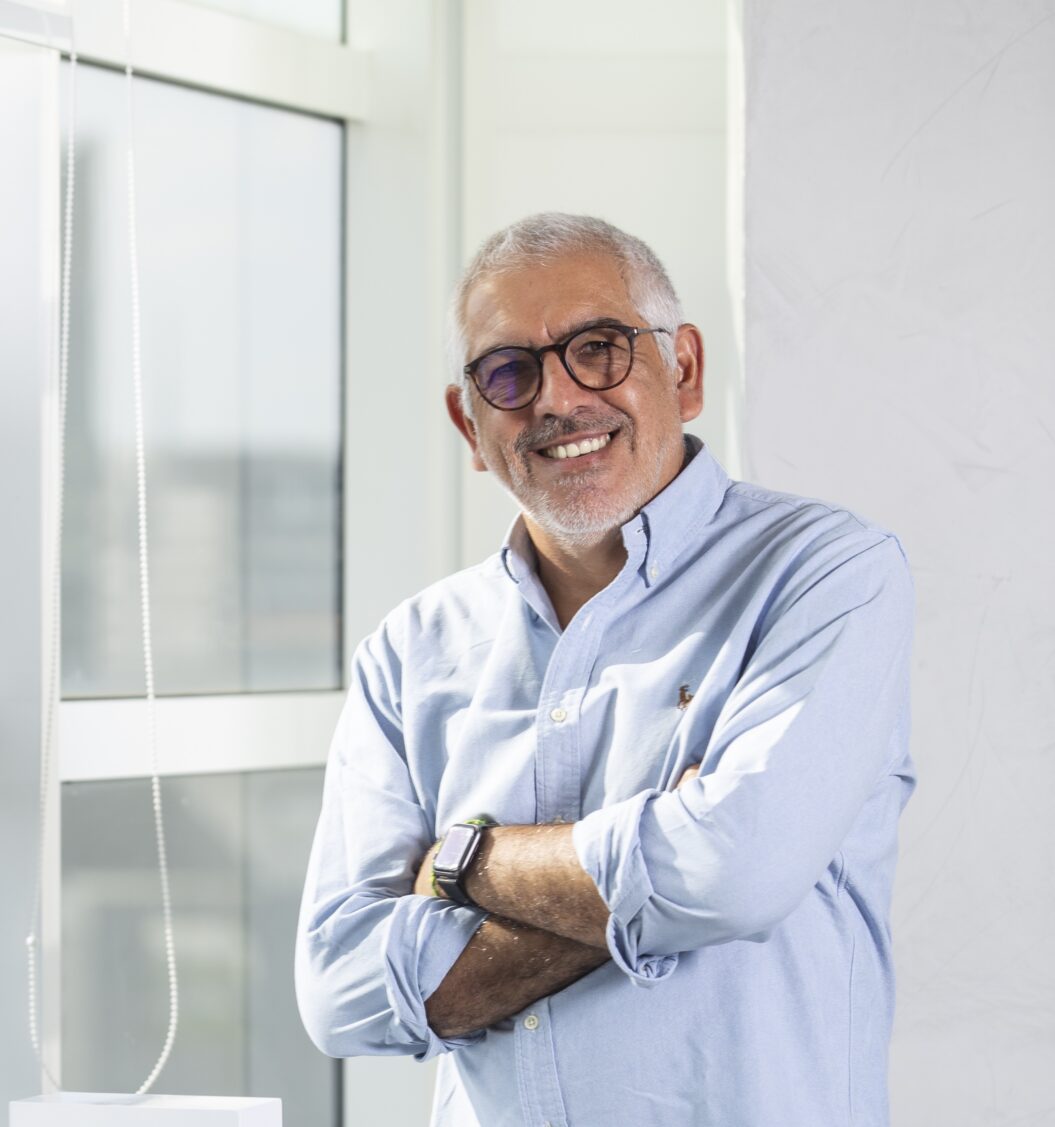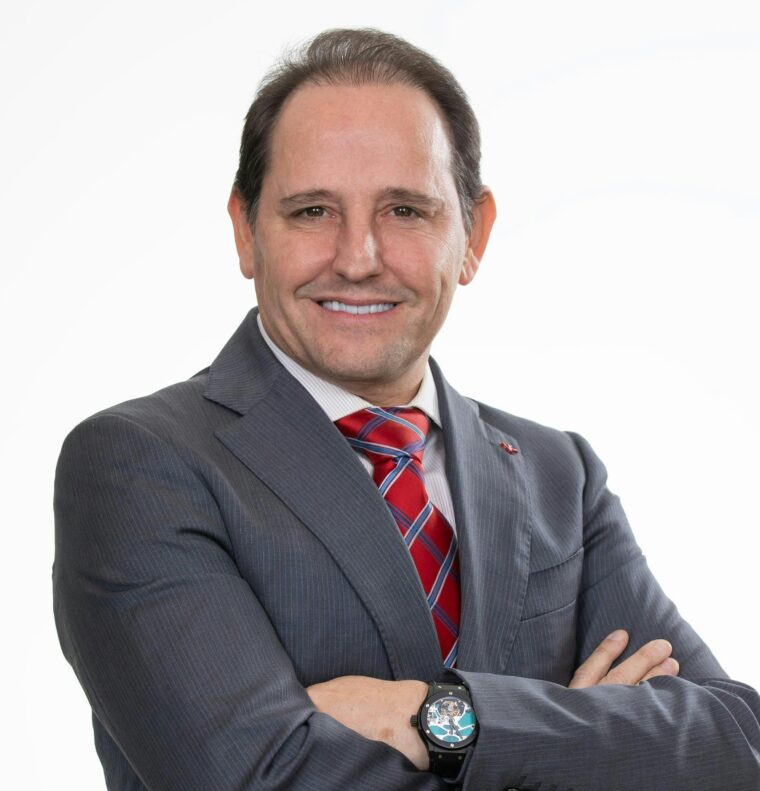Portuguese people who stand out abroad are helping to find out where business opportunities are and what kind of companies and activities the country can attract. An initiative that brings together Negócios and the Portuguese Diaspora Council.
1- What led you to leave Portugal?
In 2011, after 20 years working in Europe, based in Portugal, and at a stage in my career when I was working as a Marketing and Strategy consultant, I had an invitation to implement some extremely interesting projects in Brazil, so I decided to experiment. Throughout all previous positions, I always had great exposure to the Latin American market, namely Brazil, so it wasn’t completely foreign to me, even though changing weapons and luggage was a whole new stage. I first came alone, and, after validating some assumptions, my wife and three children joined in January 2012.
Today, and for the last 5 years, I lead the presence in Latin America of a North American company in the area of software and artificial intelligence for advertising (Vidmob – the Creative data company), with several offices and serving the largest advertisers in the digital market in more than 6 countries.
2- What advantages or disadvantages does being Portuguese bring you?
I have to confess that in 2011, in Brazil, Portugal and the Portuguese did not have the best image or reputation, having to deal with many stereotypes and prejudices on a daily basis, a situation that would change positively over the last decade.
As, throughout my career I had a lot of interaction with the Brazilian market, and coincidentally at that time there were many friends and acquaintances also living in São Paulo, integration was relatively easy.
Interestingly, the biggest disadvantage was the language, Portuguese. Seeing so similar, it becomes a trap. When we think that we understand what they say, and that they understand what we say, this fallacy becomes a block to effectively make a greater effort to understand the context, culture, differences and meanings so disparate that simple expressions entail. From the beginning, I promised myself to make as big an effort to “tropicalize” as if I were going to Sweden, in order to really try to quickly understand the culture, the differences, the expressions, the rituals and the ways of living together and work, without prejudices, stereotypes or value judgments inherent in the instinctive comparison with the direct mirror of the mother tongue.
3- What obstacles did you have to overcome and how did you do it?
Adapting to a tax regime, labour laws, a dynamic banking market and a completely different business environment led to a need for intense learning and openness to new realities. The scale of operations, the size of the markets, the country and the existing diversity require a desire and need for daily learning.
The decision to “tropicalize” from an early age, deeply understanding the ways, why and how to do it, led to quick learning, some painful, but excellent for allowing a learning curve and evolution. Today, 13 years later, I feel very at home and extremely welcome.
4- What do you admire most about the country where you are?
The contagious joy and optimism of these wonderful people who welcome us like a mother who embraces each child that arrives. The vibrant and joyful energies of Samba contrast greatly with the more defeatist and pessimistic charge of Fado that had accompanied me until then.
They are a people who cry easily in moments of enormous loving, emotional, professional or social joy, but who, in adversity, are warriors, believers, believe that tomorrow will be better and get up and work for it. They are a people who have no prejudices about giving up a “tie” career to take up an entrepreneurship project, be it Uber, services or gardening, to have a better quality of life – they don’t even think about what “others” will think.
I greatly admire the entrepreneurial spirit and the desire to succeed of the entire population, the joy and informality that exists in the work environment, the abolition of “Drs” and “engineers” and the closeness between people.
I really admire the diversity of these people who teach me every day to be better, more tolerant, more human, happier.
I greatly admire the joy with which the Catholic faith (in this case mine) is lived, the joyful, passionate and committed way of the ceremonies, of the sold-out masses several times a day, of the dustless and human speech, of the experience of this faith on the day every day and not just on Sundays.
5- What do you most admire about the company or organization where you work?
Vidmob is a company based in New York, with a presence on 5 continents, and its main mission is to help large advertisers in the digital market to optimize their investments and the quality of creativity through an artificial intelligence tool that identifies areas improving performance and adapting criteria such as Diversity, Accessibility and Sustainability.
However, when we do this for large advertisers such as L’Oréal, Coca-Cola or Heineken, we also use the same technology, completely free of charge, through the Vidmob Gives foundation, for NGOs around the world, so that they too can reach, through social media platforms, your objectives, be they fundraising, awareness and information, mobilization of resources or even visibility.
6- What recommendations would you give to Portugal and its entrepreneurs and managers?
With the humility and more pragmatic perspective of someone who is more distant from everyday reality, I would focus on some key points:
- Talent – Believing more in the incredible quality of talent and qualifications of the Portuguese.
- Opportunity Mapping – Looking at market trends in the various sectors of the economy where we can, should and are able to add value and make a difference, draw a map of strategic bets.
- Internet/technology – Portuguese as a language is one of the most used in the internet environment, however, it is little explored. Technology today allows us to operate in a series of businesses, without looking at the boundaries that have always defined us as a “small market”.
- Midlife Chrysalis – Instead of being depressed by the statistics that show an advanced average age on the European continent, with emphasis on Portugal, let’s reverse and look at this as a phenomenal opportunity for growth and differentiation, both in the market offering products and services, both in the talent and employment market. It is today the fastest growing segment of the job market in the USA, increasingly becoming a criterion for Diversity and Inclusion, in the context of Ageism, and there are more and more studies that demonstrate that, given increasingly longer life expectancies, it is It is around the age of 54 that the second half of our productive life begins. It is, above all, a second half that is much more qualified, assertive, with accumulated knowledge and experience, with other priorities and objectives, in which in fact giving back to society and others dominates, as well as building a legacy and of change whether in relation to your city, your country or similar people.
7- In which sectors of the country where you live could Portuguese companies find customers?
Given the size of the population of more than 210 million inhabitants, the flourishing economy in a variety of sectors, and the giant development opportunities, I believe that the possibilities are countless.
There are still a series of difficulties in mutual recognition of some professional categories, which make it impossible to fully look at the possibilities, but here too I believe that it is possible, in the short term, to find solutions that benefit both countries.
Just to illustrate with an example, Portugal has a quality tourism sector that is much more structured and prepared than the Brazilian reality. I believe that it is a sector where Portuguese groups, some already present here, can be part of this inevitable growth in tourism in Brazil, still far from its potential.
8- In which sectors in Portugal might companies from the country where you live want to invest?
Identifying the sectors of enormous development in Brazil, I believe that in the areas of agri-business, industry, and financial markets, which are areas where there are already real examples of great success.
9- What is the competitive advantage of the country you live in that could be replicated in Portugal?
Brazil has a culture of entrepreneurship in all its dimensions, from the micro entrepreneur to the large-scale investor, it has a culture that admits, and even encourages, error, as a fundamental piece for learning and faster evolution, and has a positive admiration for success, which encourages economic progress and investment in various sectors.
10- Do you plan to return to Portugal? Why?
Having three young adult children, my and my wife’s priority is to stay within a 2 to 3 hours plane radius of them and their future grandchildren, so, considering the professions they chose (financial market, psychology and law), a permanent return to Portugal becomes unlikely. However, we will always be very proud Portuguese, with regular visitors, investors and ambassadors of our unique qualities.
Read the original article here.







